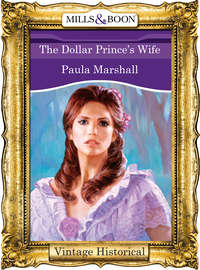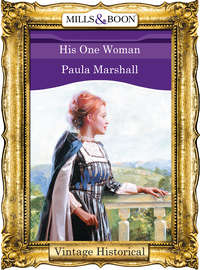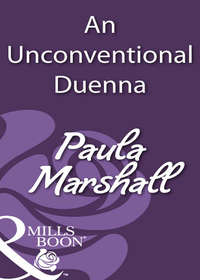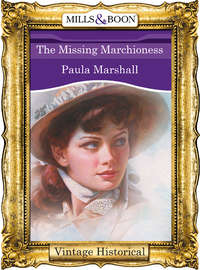
Полная версия
Dear Lady Disdain
Taking this remark as a reflection on herself, Stacy, her language deteriorating further, pronounced in her most deadly manner, calculated to bring idle clerks to heel, ‘And who the devil may you be, to speak to both me and Lord Radley so impudently?’
Before Matt could answer Jeb executed a low bow. ‘Matt’s man, ma’am, right hand and factotum. Adviser, too, as you may have gathered.’
‘Your man, m’lord!’ Stacy was all indignation. ‘And you allow him to speak to you so insolently? Did you learn your manners from him, or he from you? No matter,’ she added hastily, as Matt flung down his washcloth and began to advance on her. ‘Pray do not disturb yourself; you will never finish the washing-up at this rate!’
Only Louisa Landen, throwing a conniption fit—Jeb’s words—at this point, stopped both Matt and Stacy from prolonging their slanging-match into the night’s watches.
As Stacy, remorseful again, bent over Louisa, that good lady hissed at her, ‘For shame, Stacy, and use your common sense if it hasn’t quite flown away. You do no good bandying words with him. He has an answer for everything.’
‘And so do I, madam,’ retorted Stacy between her excellent teeth, ‘so do I.’
‘Quite so, and that is what I complain of. He is a dangerous man, and, for him, you appear to be a dangerous woman. A quiet, ladlylike refusal to join in his games would end all.’
His games! Was he playing with her? Perhaps so. He had returned to his duties, to fling over his shoulder at her, ‘I am late from the United States, Miss Stacy, or whatever your name is, and we have no masters and servants there, only equals working together.’
Forgetting all her resolutions and Louisa’s wise advice, Stacy shot back at him, ‘Which country, sir, since you are no gentleman, must be an eminently suitable place for you to live. I recommend that you return there.’
‘And by the same token, madam, since you are no lady, you should surely accompany me. Except that in the States your haughty manners would soon earn you a reprimand from everyone unfortunate enough to meet you.’
Behind her, Stacy heard Louisa wail her name, and how she refrained from answering him back she never knew. She knew only that her common sense, which seemed to have taken flight from the moment she had set foot in this accursed place, told her that she must consider poor, stricken Louisa, and try not to disgrace herself before her own people, who, apart from Hal, were staring open-mouthed at her. Who would have thought that their cool and haughty, if kind mistress could behave so wildly?
Astonishingly, bending over Louisa again, Stacy found tears pricking at her eyes. No, I will not cry, she told herself. This vile bully, who, as I recall, is no better than he should be, shall not make me cry. I will see him in hell first! And what on earth was happening to her that she should think such dreadful thoughts, use such language?
She straightened up, turned towards her tormentor, and said in a more normal voice, ‘You have said that we must sleep here tonight, sir. Are you sure that you have no rooms in this vast house sufficiently warm for us to sleep in them?’
That’s more like it, madam, thought Matt grimly. A little due humility works wonders. He forgot that he hadn’t been humble either. But he replied more gently, ‘I arrived here only two days ago, and no one has lived in most of the Hall’s rooms for the past fifteen years, nor, I fear, have they been heated during that time. We also face a shortage of fuel, so I am afraid that we are all doomed to spend the night in the kitchen—where it is at least warm—or die of cold in one of the bedrooms. I have already moved the servants from their attic bedrooms—I wouldn’t stable beasts in them.’
Jeb was nodding agreement, as well as old Horrocks, who, by what was being said among the servants, really was a butler. But what a butler! Physically frail and in his dotage, he was nearly as unsuitable in his way as Matt Falconer had been in his.
That gentleman was now asking Hal to accompany him and Jeb into the linen-store, which was kept upstairs, to fetch down sheets, more blankets, pillows and pillow-cases, and air them before the fire, which he kept going by fetching logs from a store in a lean-to against the kitchen’s outer wall. It was plain that ‘m’lord’ he might be, but he was performing menial tasks to the manner born.
It wasn’t only the logs which were almost in the open, but also the very necessaries of life. And, since the earth closet used by the servants had become frozen, Stacy was soon to discover that relief was only to be obtained by using the buckets and pails in a small storeroom with a door which didn’t shut properly and a broken window through which the keen wind whistled.
Trying to keep her voice reasonable, a difficult task, Stacy returned indoors after she had visited it to address Matt Falconer, who was now using blankets to rig up impromptu partitions to separate the women from the men during the hours of sleep. ‘I would like to wash myself, and Louisa would probably benefit from being sponged. Where shall I do so…please?’
To Matt’s grim amusement he saw that it almost choked the haughty bitch to be polite to him. And well might she ask. ‘The kitchen pump,’ he told her agreeably, ‘will supply you with cold water. Use the big iron cauldron which stands by the fire to heat it. Cook will help you.’ And then, seeing that Cook was already engaged in making up beds on the floor, he added, ‘No, allow me to assist you.’
Never in her life had Stacy ever contemplated having to do any such thing as haul buckets and pails about, or to wash herself in the full view of Cook, the little maid and Polly, whose right wrist Jeb had placed in a makeshift sling. It was quite plain that anything she needed she would have to supply herself! And the beast knew that, and was waiting to see her throw a tantrum at the prospect of having to be her own servant, as it were. Well, damn him, and his ready sneer too. If Stacy Blanchard couldn’t learn how to do the simple menial tasks which so far others had performed for her, she wasn’t worth the signature she wrote on the cheques and accounts of Blanchard’s Bank.
‘Very well,’ she replied crisply, avoiding his satiric eye, and walked across to the cauldron, which she lifted with some difficulty before placing it beneath the pump which stood by the sink. Not only was Jeb watching her, but also her servants, their jaws dropped at the sight of madam being so meek and obliging.
But, alas, when she came to try to lift the cauldron with water in it it was too heavy for her, and presently, as she struggled, she found a large hand pushing her own smaller one to one side, and Matt Falconer was lifting it with ease to hang it from the great hook above the fire.
His hands, Stacy noted, were long and shapely, but the strange thing about them was that they were the hands of a workman, not a gentleman. They were brown and scarred, with calluses on them, like Clem’s, her gardener, and his nails were cut short, quite unlike those of the men who had danced attendance on her since her first season, begging her to marry them.
Matt saw her eyes on them, smiled wryly, but said nothing. Later he ladled warm water for her into a bowl, and she retired behind one of the screens to give Louisa and herself what passed for a wash.
‘Oh, my dear, you shouldn’t be having to do all this,’ murmured Louisa ruefully, after Stacy had draped blankets round her and helped her outside to what they all referred to as the conveniences, although John Coachman forgot himself once by asking loudly before all the company, ‘Where are the jakes?’
‘Well,’ replied Stacy incontrovertibly, ‘Cook can’t do everything, the maid is useless, Polly’s wrist prevents her from assisting us, all the able-bodied men have gone outside to shovel the snow away from the fuel-store and the path to the conveniences—such as they are—so who else can help us, I should like to know?’
Louisa patted her hand. ‘You are a brave girl, my dear. Try not to mind too much the pickle we have found ourselves in. After all, we might be freezing to death in a ditch, or killed or maimed for life in the accident. And I am beginning to feel so much better after your ministrations.’
Which was no lie. The willow-bark had broken Louisa’s fever, and presently Stacy tucked her up for the night before going back into the main part of the kitchen to find the men all sitting round the scrubbed table drinking good ale. The other women were already in their beds behind the hanging blanket.
Jeb waved a hand holding a pewter pot at her.
‘Ah, Miss Berriman, what can we do for you?’
There was bread and cheese on the table, she saw longingly, and from somewhere Horrocks had found bottles of port as well as the ale. Matt, who was seated at the head of the table, stared coolly at her and said, ‘There’s food here if you want it.’
Did she want it? Of course she wanted it. She had been too strung up to eat much earlier, but she had done a lot of unaccustomed physical work during the day, and hunger gnawed at her. Pride as well as etiquette said, No, it is not possible for you to sit here, the lone woman among a pack of men, all but one your social inferiors, and tope with him and Hal and the rest; it wouldn’t be proper. They had already unwillingly dragged themselves to their feet on her arrival.
‘Sit, sit,’ she said imperiously, meaning to tell them that no, of course she wanted nothing.
Then he said mockingly, ‘I think that the fare here is too coarse for m’lady, perhaps.’
Was it, indeed? And was she to starve because she was too finicking to sit down with them on the worst night of the year, and please him by starving herself?
‘No, indeed,’ she shot back. ‘I find myself ravenous, and ale and bread and cheese, after a day spent in the snow, seem just the thing!’ She sat down by the amused Jeb and stretched out a hand for the loaf and cheese, to cut herself a good share of them and place them on one of the pewter plates which Matt had set out.
And if that broke up their damned masculine drinking-party, so much the better. They would have clearer heads in the morning, when, with luck, the storm would have abated, the coach and their possessions would be rescued from the ditch, and she could be on her way again.
A pewter pot of ale was pushed in front of her by Jeb, who, she could see, now that she was close to him, was quite a personable man despite his strange accent and even stranger clothes. She took a defiant swig from the pot and said, as though she were conversing at dinner with Lord Melbourne himself, or perhaps the Duke of Wellington, with both of whom she was on terms of friendship, ‘Pray tell me, sir, how do you find England after the United States?’
Jeb nearly choked into his ale at the sound of such ineffable condescension. He surfaced to say, ‘Cold, ma’am, damned cold. Nigh as bad as a Virginia winter, eh, Matt?’
Matt drawled, his lion’s eyes hard on her, ‘Oh, I don’t think that Miss Berriman really wishes to know about the States, Jeb. She is merely making dinner-party small talk, to put you at your ease.’
His man—or whatever he was—considered this unlikely possibility solemnly. Since Jeb was always at ease, whatever the company, high or low, the notion of a spinster lady putting him there seemed rather odd. He was about to reply, but was unable to do so, for Stacy put down her pot of ale with a defiant bang and threw loudly down the table in Matt’s direction, ‘When did you take up mind-reading, sir? Recently, I hope, if your present failure to perform it correctly is any guide. I am most intensely interested in…Jeb’s…impressions of his ancestors’ country.’
‘So there’, would have been a nice ending to that piece of defiance, but Louisa had long cured her of that trick. Now let him trump that ace, if he could!
But of course he could. He threw back his head and laughed, and damn him, why did he have to look exactly as she had imagined the dashing hero of every delightful Minerva Press novel which she had ever read, when she disliked him so? ‘Tell her why your ancestors found themselves in Virginia, Jeb, and then Miss Berriman will understand why your impressions of the old country are hardly likely to be favourable ones!’
Ever willing to oblige, and putting on his best smile, Jeb offered a trifle tentatively—for, while he was not ashamed of his ancestors’ behaviour, he was not exactly proud of it either— ‘Why, Great-granfer Priestley was transported to Virginia as a convict, ma’am, having taken part in the Monmouth Rising, when his sentence of hanging was transmuted to penal service in the colonies.’
Stacy, overcome by what she had provoked, and angry with herself as well as with Matt, said as firmly as she could, ‘Well, Mr Priestley—’ for she now knew his name ‘—a man is not to blame for what his ancestors did. I own that if I had to answer for my own great-grandfather’s actions I should be hard put to it to excuse them. And Mr Falconer should not have compelled you to answer me thus, but that doesn’t surprise me, since he obviously gave up the pretence of being a gentleman long ago.’
Matt, who was a little surprised by this generous offering to Jeb from someone whom he had thought was steeped in pride of birth, still could not prevent himself from asking, ‘And what, pray, Miss Berriman, did your ancestor do which was so scurvy? Entertain us, please.’
She had entertained them enough, Stacy thought. She had behaved like a vicious termagant in the stews or in an alehouse, and in front of her own servants too! What Louisa would have thought of her sitting at a kitchen table with a gang of men swilling drink she couldn’t imagine. At least she had avoided the port, of which Louisa always spoke in shuddering horror as the corrupter of men. But she had drunk heavily from the pot which Jeb had mischievously refilled several times, and the effects of the ale, tiredness, and the increasing warmth of the kitchen were beginning to overcome her.
‘Certainly not,’ she told him firmly. ‘I will now retire.’ And she stood up, to find the room going around her. Her face paled, and Matt Falconer, moved by an impulse he refused to recognise, swore to himself and as swiftly as he could ran round the table to catch her and prevent her from falling. Cold bitch she might be, but she had had a hell of a day, and behind the autocratic and imperious manner was a woman with a lot of guts—he had to grant her that. She had cared for the welfare of all her people before she had so much as sat down herself.
He picked her up, to find her strangely light for such a tall female, said softly, ‘Allow me, madam. I think that you are not accustomed to drinking strong ale,’ and carried her, unprotesting and already half asleep, to her bed, which was made up between those of the sleeping Polly and Louisa.
Stacy, unaware of anything but that she was in someone’s strong arms, was back in her childhood again, being carried to bed by her father. Without thinking, eyes closed, she kissed the man carrying her, on the cheek which she had earlier struck, murmuring drowsily, ‘Goodnight, Papa,’ and by the time the surprised Matt had lowered her to the bed she was soundly and sweetly asleep.
Chapter Four
Stacy started awake as a dim early light began to steal into the kitchen. She had been dreaming that she was on a wide plain, quite alone, no friend or companion with her. There was a brilliant sun overhead, and on the far horizon there was a stand of strange trees, quite unlike anything which she had seen before.
On impulse she looked down at herself, to discover that she was most oddly dressed—or rather undressed, since she was wearing nothing but a short garment made of skin, which left her arms and her legs bare. Her hair streamed, long and unruly, down her back.
Where can I be, and whatever am I doing here? she thought rather than said, looking around for help and succour. But there was no one in sight. A strange terror seized her, which deepened when from out of the stand of trees a male lion emerged, his back rippling as he moved slowly towards her, his mask inscrutable, his golden eyes blazing.
Paralysed with fear, Stacy could neither run nor speak, but stood there, staring back at him, waiting to be eaten, she supposed.
Only…only…something weird happened. The nearer the lion drew, the more he began to change, his shape shimmering, so that when he reached her it was not a lion who stood before her but a man, dressed in skins like herself; his tawny hair, like hers, flowed down his back, his strong jaw was bearded like the lion’s, and his eyes, a golden-brown, were lion’s eyes…
The lion-man gave her a brilliant smile, revealing his splendid white teeth, his eyes flashed, and, before she could register anything, whether fear or desire, she was in his arms, his mouth was on hers, his hands about her body…And she was sitting up in bed awake, panting, sweating. An ecstatic sensation which she had never before experienced was sweeping through her body, its passing leaving her weak and shuddering, as though she had run a race.
A fever! I must have caught Louisa’s fever! she thought. But when the shudderings had subsided they left no sensations of illness behind, only those of shock. It was him she had been dreaming of, and in her sleep she had allowed him to begin to make love to her.
She must be going mad. Or had gone mad the night before, for she was wearing all her clothes except her shoes, and she had no memory of how she had reached her bed. And what a bed! Memories of the previous day came flooding back, all of them unpleasant.
The kitchen was quiet except for the occasional groan, cough or snoring of the humans who occupied it. She had a strong desire to relieve herself—all the ale she had drunk, doubtless—but she had to drive herself to visit the outhouse, only dire necessity compelling her to do so. She must try not to wake the sleepers on her way there and back.
Stacy found her shoes on the floor beside the bed—who had taken them from her feet and placed them there? Was it…him? Her memory failed her again, but as she picked her way cautiously out of the kitchen it came back. Yes, he had carried her to bed, and had stopped short of stripping her of everything, had merely removed her shoes.
It had begun to snow again, and the wind had risen during the night, so that using the inadequate convenience was even more of a pennance than she had feared, but needs must. She pulled the blanket she had thrown about her shoulders more tightly around them before making her way back. With luck she would be in her bed again before anyone was up and stirring.
But the kitchen door opened even as she put a hand out to open it, and, of course, it was he who was up and about. He would be. Matt closed the door carefully behind him before he saw that she was there, and for a heart-stopping moment they stared at one another in silence.
She was right: he had been the lion-man. He was carrying a heavy greatcoat and his perfect boots, the only dandified thing about him. Otherwise he was, all things considered, lightly dressed, wearing only his shirt, unbuttoned almost to the waist, to show a tawny pelt extending from his neck to his middle, and his black breeches, with his legs and feet in black silk socks. If anything, he looked even larger and more massive than he did when he was fully dressed. And she had been right about him looking like a prize-fighter: he was fully as muscular as she had imagined him to be.
His firm jaw showed a light, tawny stubble, and a pang shot through her. She had a dreadful, insane desire to run her fingers along the strong line, to feel his growing beard’s roughness. His eyes, the most compelling thing about him, were on her, as avidly as hers were on him. Yes, this place was driving her mad to make her think such thoughts.
Matt Falconer, for his part, saw a transformed woman. The softness of sleep was written on Stacy’s face; all the stern lines, together with the strong set of her mouth, were quite gone. She looked like a woman ready to entertain her lover. Did she know, or was she quite unconscious of what she looked like when she wasn’t playing Lady Disdain? Her black hair had come loose during the night so that it was no longer strained away from her face, sharpening it, but tumbled in soft, curling waves almost to her waist, adding to the impression of soft abandon which the rest of her gave.
The stasis which held them both paralysed passed. Stacy said in a whisper, ‘You are out and about early, sir.’
Matt shrugged, replied prosaically, ‘Someone must look after and feed the horses.’
The horses! She had quite forgotten about the horses in worrying about everyone and everything else. Matt was now sitting down on a low stool which stood by the door and was beginning to pull his boots on. He was going to feed the horses. How odd. Why not Jeb, or one of the other menservants—Hal or John Coachman, for instance, or even the postilion? She could not think of one of the many men who had passed through her life, offering for her hand—no, for the Bank—who would have gone to the trouble of caring for and feeding the horses when there was a kitchen full of menservants who could be ordered to do so.
The wind struck her keenly and she began to shiver, with cold this time. ‘I ought to help you,’ she offered.
Matt, now booted, stood up and began to pull on his heavy many-caped coat. ‘No,’ he told her curtly. ‘Not that I couldn’t do with your assistance, but you are not properly dressed for the task. If it becomes too much for me I shall fetch that tall footman of yours, the one who is so keen to defend you, to help me. He will probably be awake by then. Now go indoors before you die of cold, and if you really want to be useful make up the fire and put water on to boil for the breakfast porridge.’
His coat was on and fully buttoned, and without further ado, and certainly without any of the usual empty politenesses with which gentlemen usually favoured ladies, he was gone, struggling through the driving snow to the stables. What a strange creature he was! One moment insulting her by talking so of Hal, the next off to save Hal and the others trouble, after speaking to her as though she were a servant!
Anger flooded Stacy as she made her way to the big kitchen fire, to find Cook there, already beginning to work, but grateful to the fine lady who insisted on helping. In the daylight she could see how large the kitchen was, and also that, over the years, it had been allowed to deteriorate. The walls were black, the copper pans were dull, overgrown with verdigris, and the tables looked as though they had not been scrubbed since the Domesday Book had been written.
Which was probably due, thought Stacy disgustedly, to Matt Falconer’s easy way with servants. No wonder he orders me about as though I were a kitchen maid if he is so willing to do the menial work himself—but how can he bear to live in such a pig-sty? This was a puzzle which occupied her until the next time she crossed swords with him.
Matt Falconer, feeding the horses, throwing extra blankets over them, was occupied in trying to solve another problem—that of Miss Anna Berriman, known to her companion and servants, when they weren’t thinking of what they were saying, as Miss Stacy.
He had met many women in the United States who carried themselves with a frankness usually reserved for men, and who often, out in the fields of Virginia in the poorer plantations, did the work of men. But Miss Berriman was another thing altogether. It was plain that all her people were, if not frightened of her, ever-ready to jump to her orders. She had an unconscious arrogance, giving her orders as though it were the only thing in life she existed to do. But she was, he was coming to see, much more than your usual domineering fine lady, who took her rank as carte blanche to be as unpleasant as she could to all around her while doing nothing herself.
She organised her affairs in a wholly practical way. There was nothing frivolous about her. And she was ready to do things herself. She had helped to feed Louisa and had bound up Polly’s wrist, and although she had bridled and tossed her head at his orders she had carried them out once she saw that her assistance was necessary if they were going to get through the night without undue distress.








